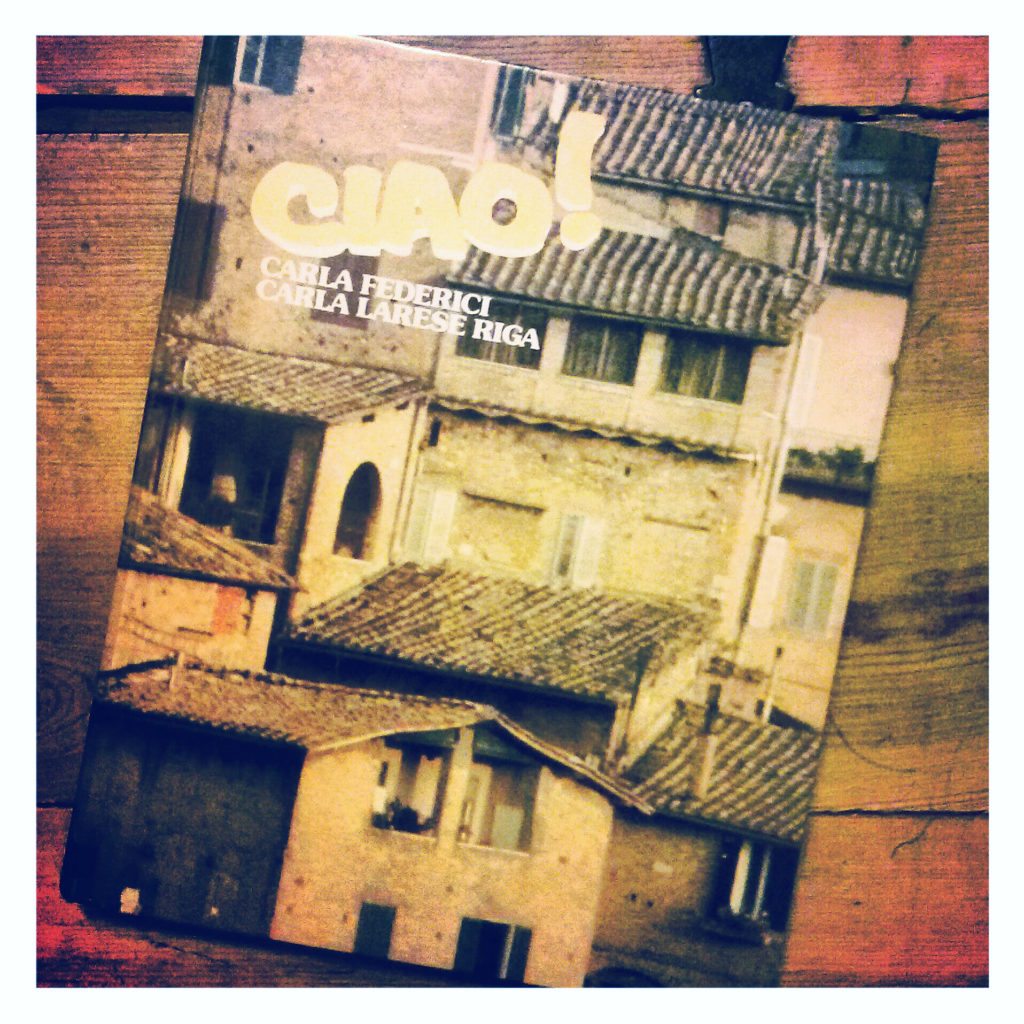This is my textbook from my first year of Italian in high school.
I’m of Italian descent, so back then, when I found out my school offered it, I jumped at the opportunity. I did very well. In fact, I ended up taking two more years after that.
When I headed off to college, I was again overjoyed to find out that it too, offered the language, and immediately signed-up. Again I did well.
A couple of years later, I was blessed with the opportunity to actually live and study in Rome for a semester.
So let me recap: Guy takes 3 years of high school Italian, 1 year of college Italian, and lives in Italy for three months.
Friends: Today, do you know what my working knowledge of the Italian language is?
1) I can order food eloquently in an Italian restaurant.
2) I can handle you if you cut me off on the highway (and this, I assure you I did not learn in any of my classes).
For all that time previously spent in the classroom, when I had the chance, I never stretched myself enough to actually use the language in any substantive way. I took the easiest shortcuts, (lots of simple phrases and finger-pointing), and I relied on English-speaking Italian friends to let me slide.
As a result, I was a star in the classroom, and a failure in the real world.
The Church has this problem too.
A lot of people who call themselves Christians, mistake the classroom for the real world.
We show-up every Sunday to church, and week after week, we sit in glorified lectures, hearing someone else give us information and inspiration. We take notes and put in our time and matriculate toward apparent maturity.
We go to small groups and Bible studies, and discuss more ideas and more facts; debating verses and learning history and Bible vocabulary words; lots of data.
We read books and read blogs, and write books and write blogs. We swim in a sea of spiritual concepts and religious ideas and churchified theories.
We do all these things, thinking we are the real world, but we aren’t, believing that this is the focus of our faith journey, but it isn’t, being fooled into thinking that we are actually following Jesus, but we’re not.
To follow Jesus… one needs to move.
These noble and necessary experiences of Sunday worship and personal and corporate Bible Study, as wonderful and inspirational and edifying as they are, were never meant to be the end product. They are simply the classroom, where our theology is shaped and incubated.
The problem is, that theology is all just theory, all just head knowledge, that needs to be worked out, to be practiced daily or it is untested and unreal and useless.
Jesus made the world, the classroom for his disciples; giving object lessons out of stuff they could touch and smell, physically placing them among prostitutes and blind beggars and hungry people.
He immersed them in the work of God, while giving them the words of God.
Weekly church worship is the place where we prepare ourselves for a life lived outside of the walls, beyond an hour on Sunday. That hour, you see, is actually the least difficult place on the planet to be a Christian. (It’s an “easy A”, if ever there was one).
And yet, we look at the world around us, and it seems so fractured and hurting and wounded. There is poverty and injustice and all sorts of pain, and all of it happening, surrounded by churches on every corner.
How can this be?
Maybe what the brokenness outside the walls of our churches needs, is for us to spend less time inside; taking notes and pondering and pontificating. Maybe we need to study less and congregate less, and to theorize less.
Consider:
– Instead of sitting through a 6-week series on compassion, skip church one Sunday, and well, go be compassionate.
– Instead of a thought-provoking small group study on Jesus’ command to feed the poor, cancel small group and together, go feed some poor people.
– Instead of reading the next book about “radical faith”, try doing something radically faithful to Jesus.
I think there is a generation of soul-sick people out there, waiting for we who claim to follow Jesus, to throw open the doors of our buildings, to stretch ourselves beyond the numbing comfort of our insulated intellectual pursuits, and to actually step into their space, imitating the one whose name we take.
Jesus called it, “the Kingdom come, on earth as it is in Heaven.”
May our faith not be confined to our heads and campuses and weekly gatherings.
May our convictions be more than theories and declarations and concepts.
May our Christianity not make us stars in the classroom, and failures in the world.
Ciao!




